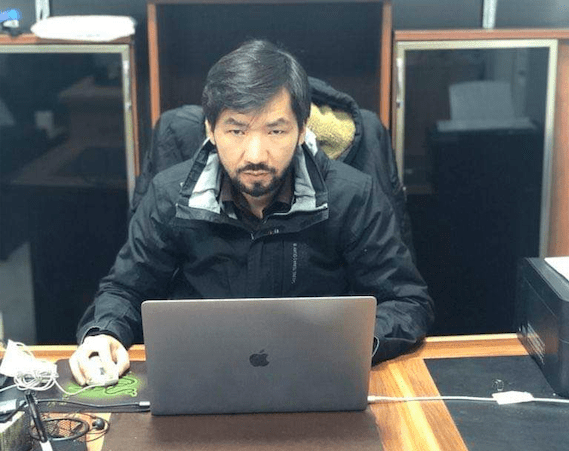
Idris Hasan has been detained at China’s request for two months
“I fear that if my husband is sent back to China, I will never see him again” – Zaynura Hasan
The Moroccan authorities must not transfer Idris Hasan, an ethnic Uyghur who was detained in the country, to China where he is at risk of torture, Amnesty International said ahead of his extradition hearing tomorrow (Wednesday 22 September).
Hasan, a 33-year-old father of three and a computer designer, was arrested at Casablanca airport on 19 July after flying to Morocco from Turkey, and was taken to a prison near the town of Tiflet.
Hasan holds Chinese nationality and a Turkish residency permit. Amnesty International believes he is at real risk of arbitrary detention and torture if he is forcibly transferred to China.
“The plight of Idris Hasan is indicative of China’s efforts to control the Uyghur diaspora community,” said Joanne Mariner, Amnesty International’s Crisis Response Director.
“The threat to extradite or otherwise remove Uyghurs creates an atmosphere of fear that dissuades people overseas from speaking out.
“For Morocco to send Idris Hasan to China – where Uyghurs and other ethnic minorities are facing a horrifying campaign of mass internment, persecution and torture – would violate the country’s obligations under international law.”
The principle of non-refoulement guarantees that no one should be returned to a country where they would face a real risk of torture or other cruel, inhuman or degrading treatment or punishment, and other serious human rights violations.
It would also utterly contradict Morocco’s commitments as one of the Convention against Torture Initiative Core States, whose aspiration is “to reduce and prevent the risks of torture and ill-treatment”.
Family pleas
Idris Hasan has been living in Turkey since 2012, with his wife Zaynura and their three children. His wife and children have permanent residency permits in Turkey, but his own residency permit is categorized as “humanitarian”.
Zaynura told Amnesty International: “I fear that if my husband is sent back to China, I will never see him again. Now that he is not here … my middle daughter wakes up every day saying that she dreamed of her dad, and she often cries loud for no reason.
“Now my children have started school, I am feeling the absence of my husband more and more. He used to take them to and from school, help them do their homework, play with them.
“My husband is counting the days, hoping that he will be released very soon. It will be a big setback for us all if he is not released.”
Background
Hasan was arrested on the basis of an Interpol red notice after landing in Casablanca. Interpol has since cancelled the red notice issued in Hasan’s case, based on new information its secretariat received.
China ratified an extradition treaty with Morocco in 2017, one of several such treaties that it has entered into in recent years.
The Chinese government reportedly considers Hasan a “terrorist”, because of work he has previously done for Uyghur organizations. Chinese law defines “terrorism” and “extremism” in an overly broad and vague manner, and has been used to crack down on Uyghurs and other ethnic minorities.
In June 2021, Amnesty International published a report revealing how hundreds of thousands of Muslim men and women in China’s Xinjiang Uyghur Autonomous Region are being subjected to arbitrary mass detention, indoctrination and torture.
In the report, ‘Like We Were Enemies in a War’: China’s Mass Internment, Torture, and Persecution of Muslims in Xinjiang, Amnesty International’s Crisis Response team released dozens of new testimonies from former detainees detailing the extreme measures taken by Chinese authorities since 2017 to essentially root out Islamic religious beliefs and traditions, as well as the cultural practices and local languages of the region’s Muslim ethnic groups.
Carried out under the guise of fighting “terrorism”, these crimes have targeted ethnic Uyghurs, Kazakhs, Hui, Kyrgyz, Uzbeks and Tajiks.
Amnesty International also launched an international campaign calling for the closure of the internment camps, with more than 60 detailed casefiles on some of those thought to be currently detained. As of September 2021, more than 300,000 signatures have been collected from all over the world to demand of President Xi Jinping and others that the Chinese authorities release all those currently detained in internment camps and prisons in Xinjiang.

0 Comments